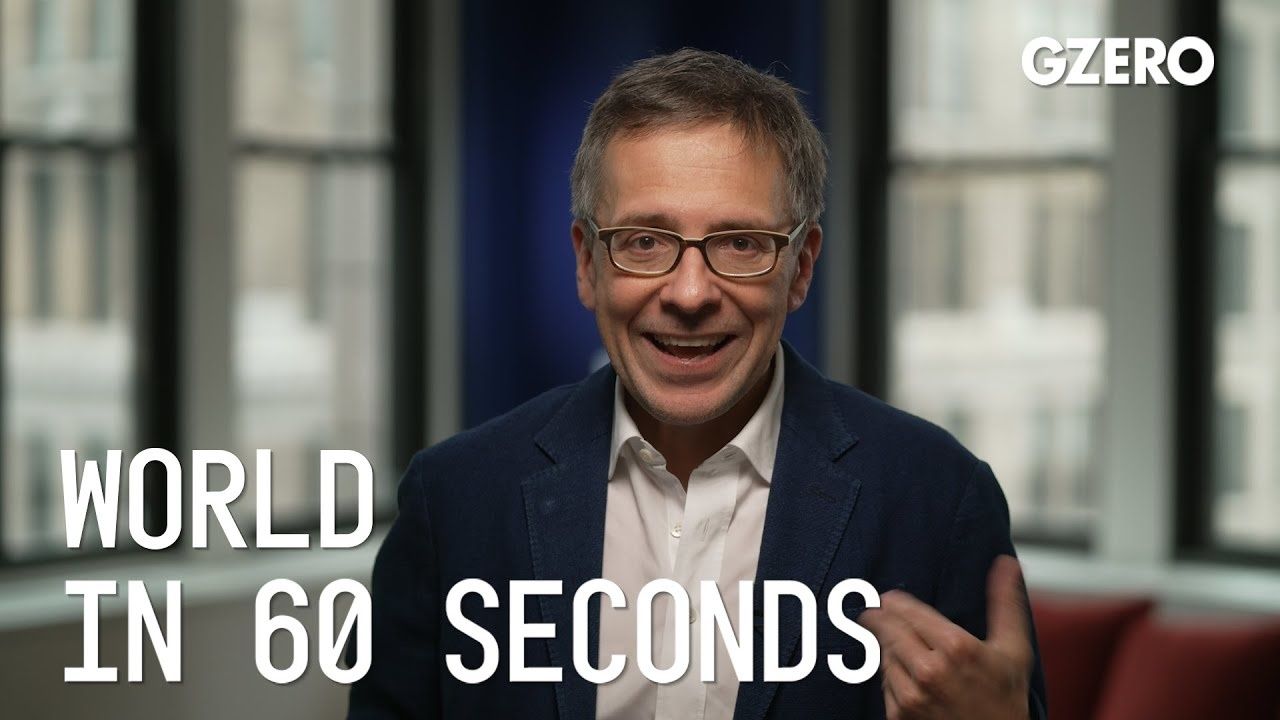ask ian
Effective COVID-19 responses; Danger in China's anger at Trump; UBI

Effective COVID-19 responses; Danger in China's anger at Trump; UBI | World In :60 | GZERO Media

Ian Bremmer takes (slightly) more than 60 seconds to share his analysis:
Which country is combating the COVID-19 pandemic best? Who's doing worst?
Best? Clearly, Singapore, Taiwan. Got out early. Had tests. Incredibly transparent. They got clear information to their people and the people actually listened to their government. Relatively small, wealthy, and homogeneous populations, also with health care systems that actually work. So, I would say they're doing it the best. Who's doing it the worst? Got to be Iran, where you have lack of capacity, lack of information, no trust in government, massive and early explosion of cases, awful lot of people getting killed. Beyond that, though, there are a lot of leaders out there that are doing it badly. Leaders that early were basically telling a great story to their people and as a consequence, weren't able to respond effectively. Effectively lying to their people and here, I mean, it doesn't matter what side of the political spectrum you're on, you need to get facts out there early and not just what your gut tells you. In the UK, Boris Johnson. In the United States, Donald Trump. In Mexico, Lopez Obrador. In Brazil, Bolsonaro. I mean all have really mishandled this for their own populations and as a consequence, the impact of coronavirus, it's going to be a lot worse.
Why is China expelling American journalists?
A big deal, saying they're expelling Wall Street Journal, New York Times, Washington Post from China and Hong Kong. And, you know, by the way, The New York Times coverage of China has been, if anything, very positive. The Chinese don't care. They're angry at the Americans, particularly now that President Trump has on a couple of days started beating the drum on the "China virus" as opposed to coronavirus. And by the way, yes, it initially came from China. And yes, the Chinese government absolutely clamped down on transparent information. So as a consequence, this thing exploded. They are ultimately responsible for that. But calling it the China flu, especially in the context of where US-China relations are right now, is incendiary. And they are absolutely feeling very confident about their relations with other countries in the world. They're hitting the Americans back. This is a dangerous place for these two countries to be.
Is UBI a realistic solution for our current economic situation?
UBI being universal basic income? I don't think that ongoing permanent UBI is realistic because we haven't tested it. We don't have a system for it. It'd be incredibly expensive. And we don't know if it works. But certainly, near term, I firmly believe you're going to see something that feels like UBI for now. In other words, direct stimulus where every American gets a check. That is a more efficient way to get money deployed into the economy, to get consumers less worried and spending, than other more indirect fashions of benefits. And I also think that the amount of total stimulus you're going to see in the US by spring is going to be well over a trillion dollars. It's not for want of money that the Americans are going to be unable to fight this if we have problems. It's much more about political leadership and the comparative port development of our health care system.
In his latest Quick Take, Ian Bremmer explains a major shift in the Ukraine war: Europe, not the United States, is now driving the strategy.
In 2025, GZERO’s Global Stage coverage highlighted a recurring theme: artificial intelligence is transforming every corner of the globe.
It's one of the few sources Americans across the political spectrum still rely on.
At the start of the 21st century, Destiny’s Child was atop the US charts, “Google” was a little known search website with a weird name, and two things happened that would shape the world we live in today.